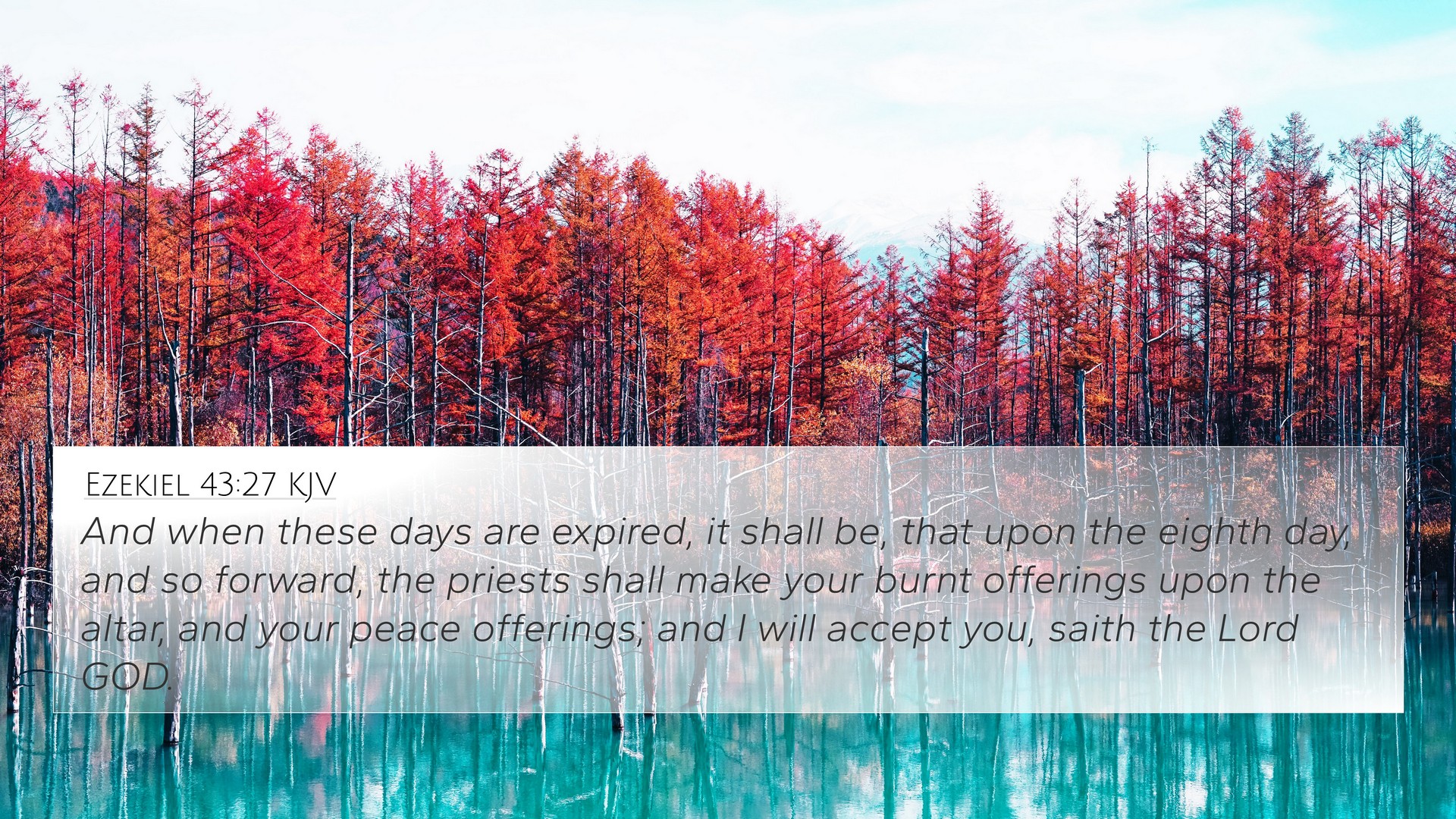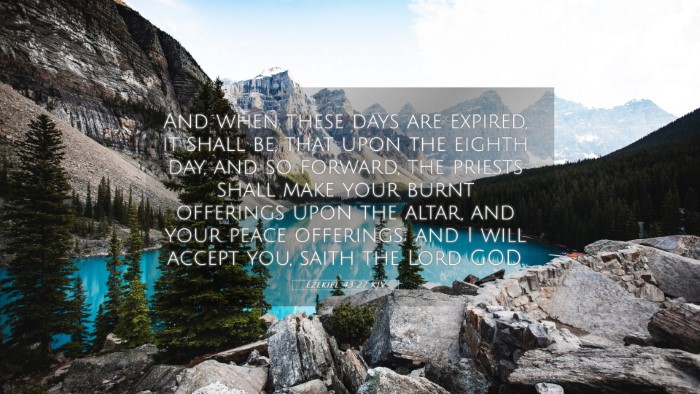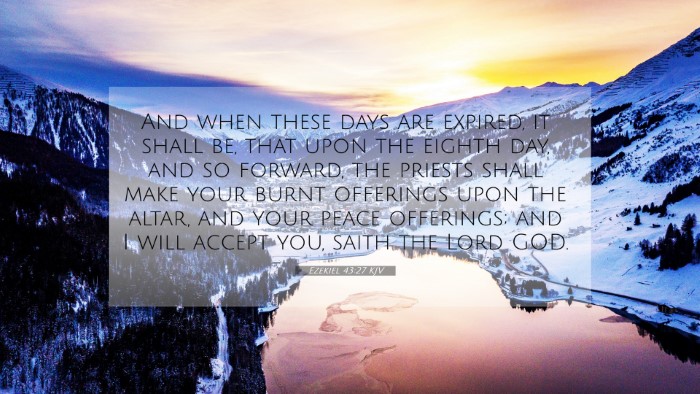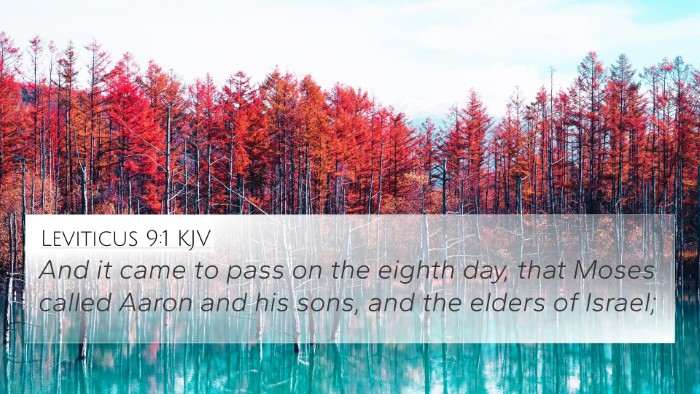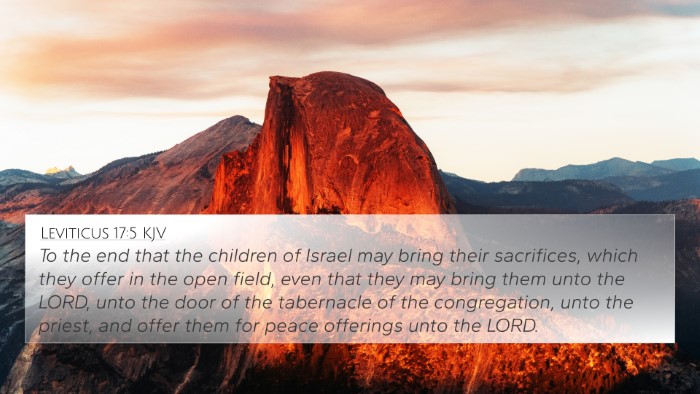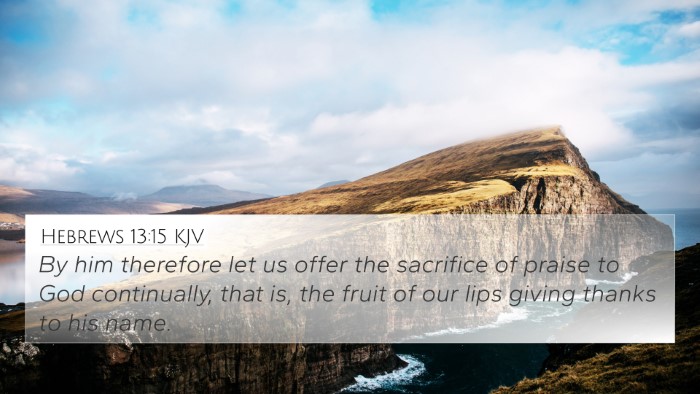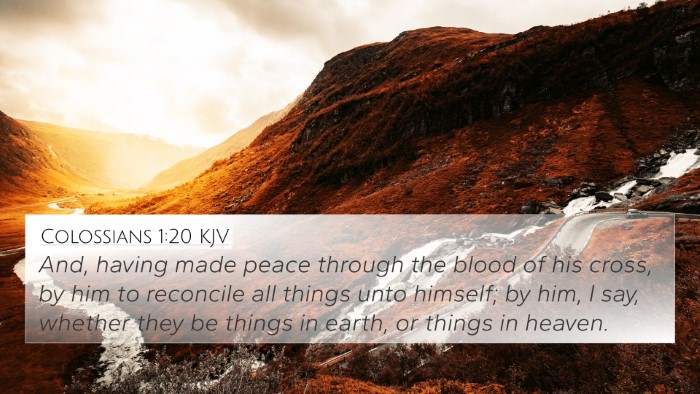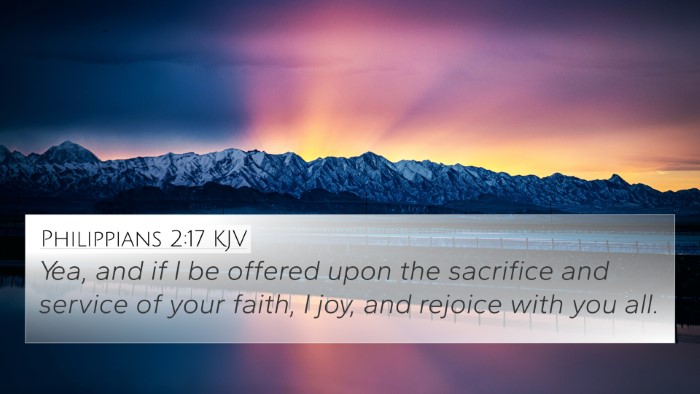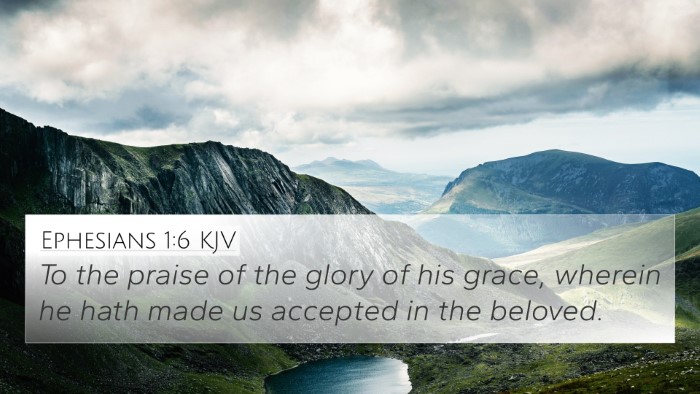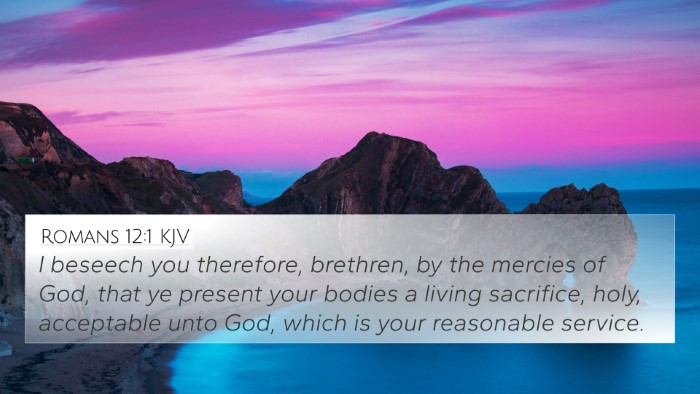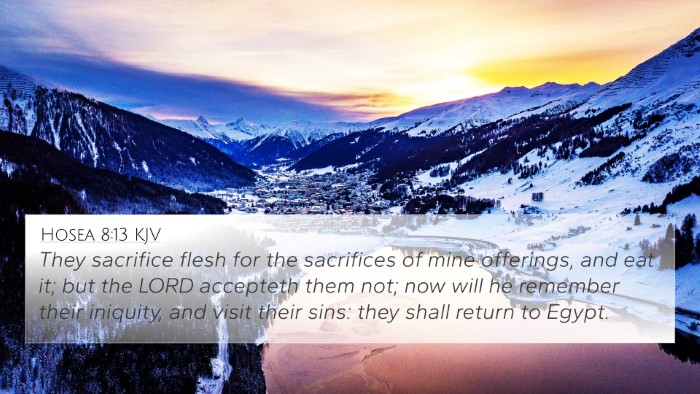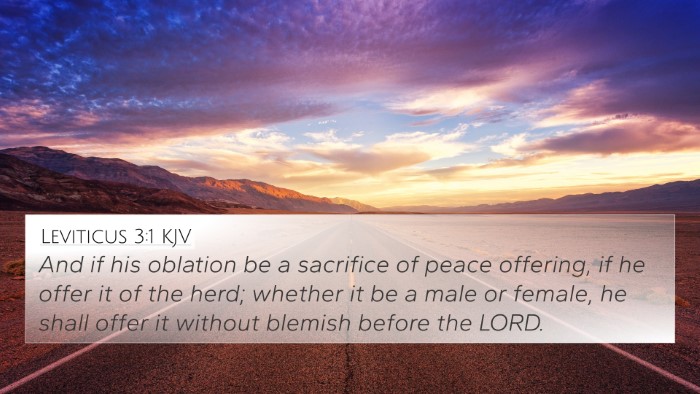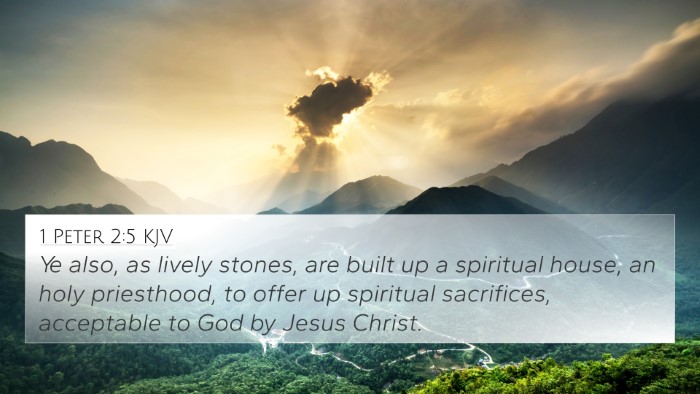Ezekiel 43:27 - Summary and Interpretation
Ezekiel 43:27 states, “And when these days are expired, it shall be that upon the eighth day, and so forward, the priests shall make your burnt offerings upon the altar, and your peace offerings; and I will accept you, saith the Lord God.” This verse highlights the instructions for the ceremonial observance following the dedication of the altar and the significance of the offerings made by the priests. Here, we provide an analysis and understanding based on public domain commentaries.
Meaning and Significance of the Verse
The context of Ezekiel 43 focuses on the glory of the Lord returning to the temple and the reestablishment of proper worship. Matthew Henry notes that this passage signifies the acceptance of the sacrifices brought forth by the priests, symbolizing God's desire to dwell among His people once again.
Albert Barnes emphasizes the importance of the timing in the offerings, elaborating that the eighth day symbolizes a new beginning and the continuity of worship that unites the past and the future. Adam Clarke expands on this by explaining that the priests are entrusted with a sacred duty, and their actions reflect obedience to God's law, where their offerings will be accepted as an expression of faith and devotion.
Connections to Other Bible Verses
Ezekiel 43:27 is rich in connections with other scripture, illustrating a web of thematic Bible verse connections. Below are relevant cross-references:
- Leviticus 1:3-4: Discusses the burnt offerings and the priest's role in the process.
- Numbers 28:1-8: Details the offerings that are to be made on specific occasions, reinforcing the importance of ritual.
- Hebrews 13:15: Highlights the concept of offering spiritual sacrifices praising God, aligning with the sacrificial nature of worship.
- Romans 12:1: Refers to presenting our bodies as living sacrifices, echoing Ezekiel's call for dedication to God.
- 1 Peter 2:5: Describes Christians as being a holy priesthood, suggesting a continuity from the Old Testament to the New.
- Psalm 51:17: Indicates that God desires a broken spirit and contrite heart, aligning the internal state with outward offerings.
- 1 Chronicles 29:14: Affirms that all offerings come from God and that we are merely stewards of what He provides.
Thematic Analysis
Thematically, this verse and its context showcase the restoration of worship and the relationship between God and His people. The act of making offerings implies that despite the past transgressions and the destruction of the temple, there is an opportunity for reconciliation and a fresh start. Matthew Henry notes the implications of acceptance from God, implying that the people's worship would be restored if they follow the prescribed methods.
Albert Barnes reinforces this theme of reconciliation, suggesting that the reestablishment of altar worship signifies God's mercy and acceptance of humanity’s offerings. He indicates that such rituals serve as pivotal means through which the people can express their devotion and seek forgiveness.
Adam Clarke embodies the thought that the sacrificial system was not only about ritual; it reflected the hope and restoration of divine favor amongst the community of believers. He argues for the relational aspect of God and the people during these celebrations surrounding the altar, ultimately emphasizing the theme of redemption.
Conclusion
To summarize, Ezekiel 43:27 serves as a profound reminder of the importance of worship, the acceptance of offerings, and the ongoing relationship between God and His people. By using the tools for Bible cross-referencing, we see how this verse connects to various aspects of the Old and New Testament, enriching our understanding of biblical themes.
The study of cross-references allows believers to explore the tapestry of scripture, revealing connections between biblical texts and drawing comparisons that enhance spiritual growth. Through a comprehensive Bible cross-reference guide, one can delve deeper into the meanings behind offerings, rituals, and their implications for modern worship.
As we reflect on Ezekiel 43:27, we are invited into a deeper understanding of how God desires our worship and obedience, urging us to uphold the significance of our actions and intentions in expressively linking Biblical texts to our spiritual journeys.
